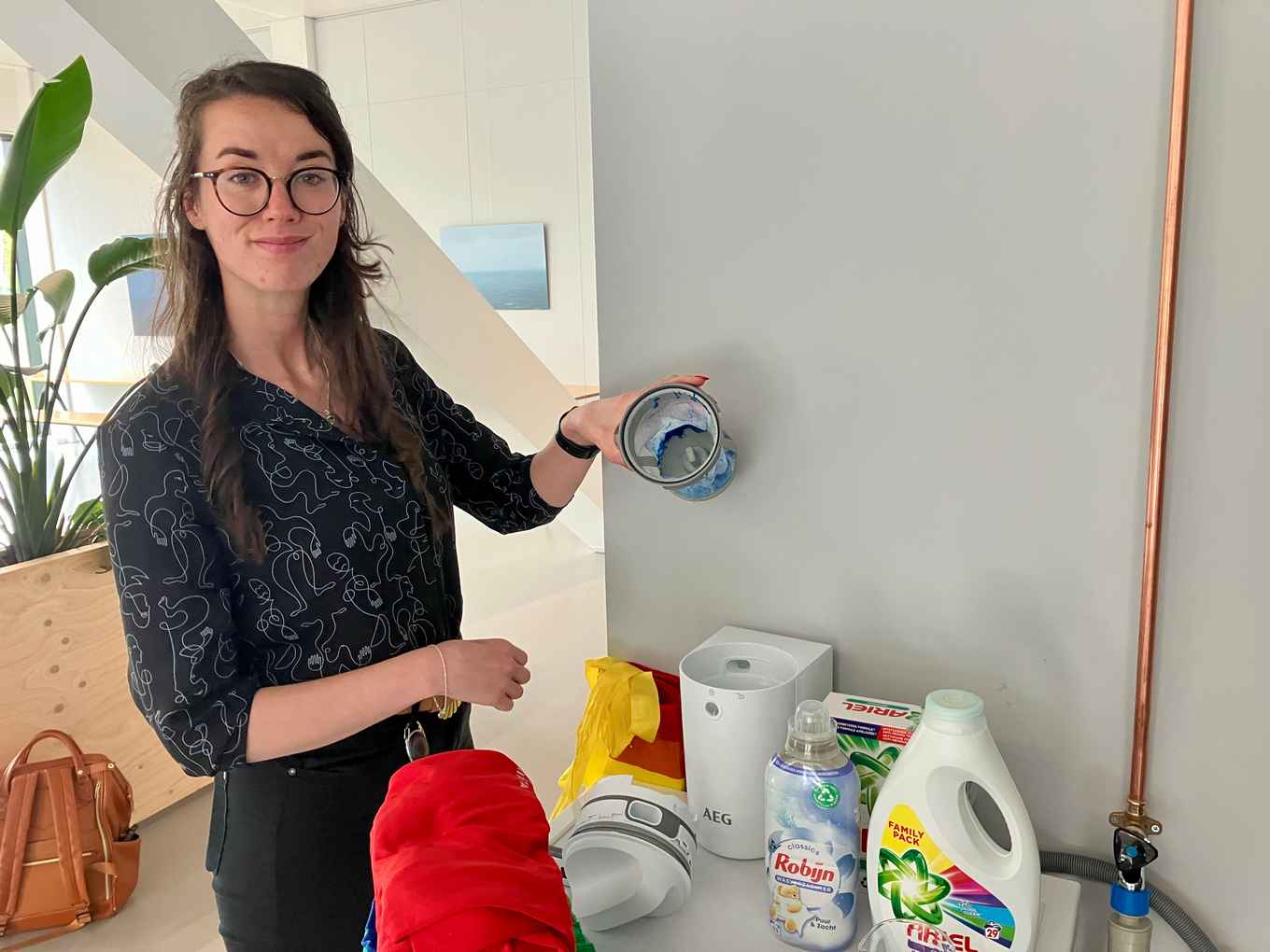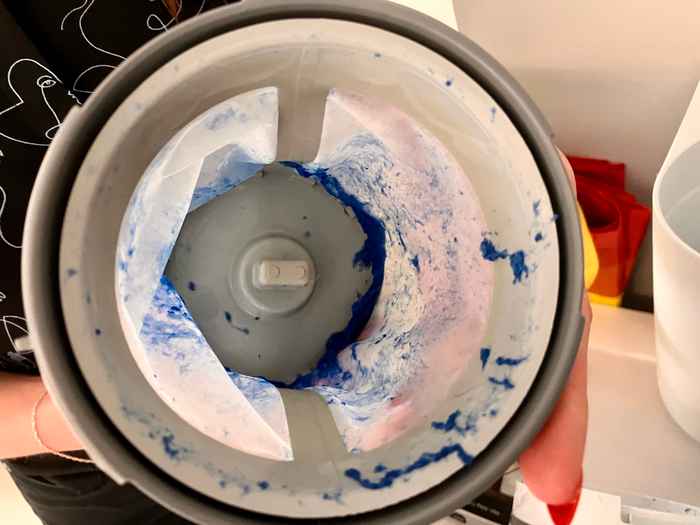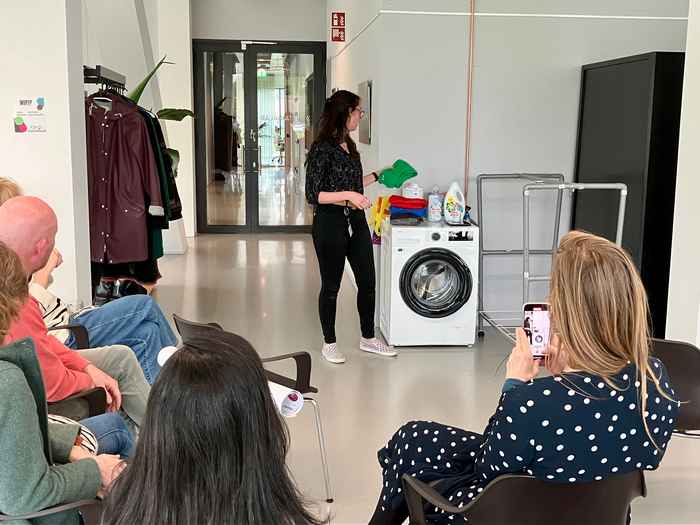How your dirty laundry may be a scientist’s treasure
29 April 2024

The underlying matter is quite serious, though: synthetic textiles are the fourth largest source of microplastics in the Dutch environment and a major source of microplastics in the world’s oceans. More research is needed to stop this kind of pollution.
The project started in 2022 as META: Microplastic Emissions from Textiles in Amsterdam. Washing synthetic fabrics is the cause of a vast amount of microfibers ending up in the environment in the form of microplastics (polymer particles smaller than 5 mm in size), but is often overlooked as part of the ecological footprint of textiles.
With the help of citizen science, the interdisciplinary research team from the Faculty of Science and the Faculty of Social and Behavioral Sciences collected large datasets under real-life conditions and gained insights into human behaviour and attitudes regarding washing and the emission of microplastics.
How to collect synthetic fibres
How they did this? They simply asked over a hundred citizens to monitor their washing by weighing their laundry, putting it in a bag and washing it, and afterwards collecting the fibres stuck to the inside of the bag with a sticky roller and sending these to the researchers, together with a filled-in questionnaire. The results of all this will be published later this year.
The new and larger research project SISTEM-NL builds on the META project and aims to put the UvA in a unique and central position by establishing it as a hub for collaboration between academia, citizens, and societal- and industrial partners who all share the goal of reducing the environmental impacts of textiles and plastics.
Back to the washing machine
To make the issue tangible and visible, and to involve both UvA staff, students and other inhabitants of Amsterdam, SISTEM-NL has joined forces with the ever-hospitable SustainaLab and installed a washing machine there.
A special filter has been connected to the machine to collect the fibres released during the washing. Every cycle will start with a new filter. By the way, filters like these will be mandatory in France from the first of January 2025 for all newly produced washing machines. That makes France the first country in the world to take legislative steps in the fight against plastic microfiber pollution.
As of the 29th of April, a timeslot for the washing machine can be booked here. Doing your laundry at Sustainalab is free of charge, but the users/citizen scientists are asked to bring their own detergent, weigh their laundry and take photos of it.
Sweaty football shirts in Sustainalab?
Bart Krull, the initiator of Sustainalab, is very enthusiastic about taking part in the experiment and the possibility it offers to connect with the neighbourhood. He doesn’t mind if the whole team of football club Zeeburgia or tennis club Tie-Breakers bring over their sweaty – and very synthetic – shirts and shorts.
But he is not sure about the drying part. Krull: “We need to avoid having students’ underwear hanging here during events.” “Maybe,” he laughs, “it’s time to consider buying a SpeedDryer, the life's work of 72-year-old Ans Clements: a drying rack with a very low environmental impact that dries laundry within two hours for only five 5 cents per drying session. Everything for science and sustainability!”
META and SISTEM-NL were funded with a USP Seed Grant and Midsize Grant respectively. More information on USP grants can be found here.
If you want to know more about this project or the ‘Pluis het Uit’ campaign, in which nearly 2,000 elementary school children in The Netherlands collected and examined synthetic clothing fibers, please visit the META website.
-Elles Tukker, UvA Sustainability Platform (USP)

